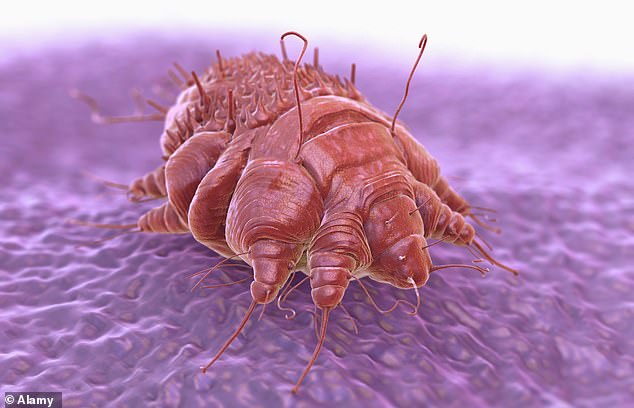A major sixth form college in the south west has been hit by an outbreak of highly contagious scabies, a parasitic infection caused by mites that burrow into the skin.
Parents of Truro and Penwith College students have been warned that a number of students at their Truro campus have contracted the disease, which can be transmitted by sharing towels, bedding and even cushions.
The warning email issued by the school advises parents to take children with a rash that worsens at night to their GP and inform them that they have been in contact with scabies.
“If diagnosed with scabies, it is important that all family members receive treatment at the same time, regardless of whether they have any symptoms.” CornwallLive reported.
Most commonly associated with the Victorian or Dickensian era, scabies manifests as an intensely itchy, bumpy rash caused by the saliva, eggs, and feces of the parasitic mite Sarcoptes scabiei.
Hospital cases of the condition, which in rare cases can lead to life-threatening blood infections, have risen 73 percent since last year, according to the latest data.
The new outbreak comes just months after GPs warned of a rise in infection cases with the number of diagnoses by GPs “above the five-year average and rising”.
This followed another warning in January about infection rates doubling in a year, raising fears that mites were becoming resistant to routine medications.
Parents of Truro and Penwith College students have been warned that a number of students at their Truro campus have contracted the disease, which can be transmitted by sharing towels, bedding and even cushions.

Most commonly associated with the Victorian or Dickensian era, scabies manifests as an intensely itchy rash caused by the saliva, eggs and feces of the parasitic mite Sarcoptes scabiei (pictured).
Scabies is highly contagious and has a reputation for spreading in places with shared accommodation, such as college dormitories, nursing homes, prisons, and immigration detention centers.
People will experience the characteristic rash, which looks like a row of raised spots as the mites burrow into the skin and lay eggs, for up to eight weeks after contact with an infected person or their belongings.
Scabies is most often spread through prolonged or frequent skin-to-skin contact, such as sex or sharing towels, bedding, or clothing.
The infection is incurable without treatment.
NHS guidance recommends using permethrin or malathion creams, which should be rubbed all over the body, including under the nails.
It should be kept for up to 24 hours and should be repeated after a week.
Alternatively, evidence suggests that ivermectin, taken in pill form, is safe and equally effective.
European regulators recommend it in two doses two weeks apart for standard scabies. It can be used together with creams for more serious cases.
In the UK, however, only a specialist (usually a dermatologist) can issue a prescription for severe cases or to treat an outbreak, according to the UK Health Safety Agency (UKHSA).
While scabies is usually not dangerous on its own, scratching by the infected person can lead to secondary bacterial skin infections.
People with compromised immune systems, such as cancer patients receiving chemotherapy, are vulnerable to hyperinfestations of mites called crusted scabies.
Truro and Penwith College is a lauded sixth form college in the South West, which was the first tertiary college to be awarded ‘Outstanding’ status by Ofsted in 2006, according to the school’s website.
It is also among the top 20 state schools for students who gain places at Oxford or Cambridge.

